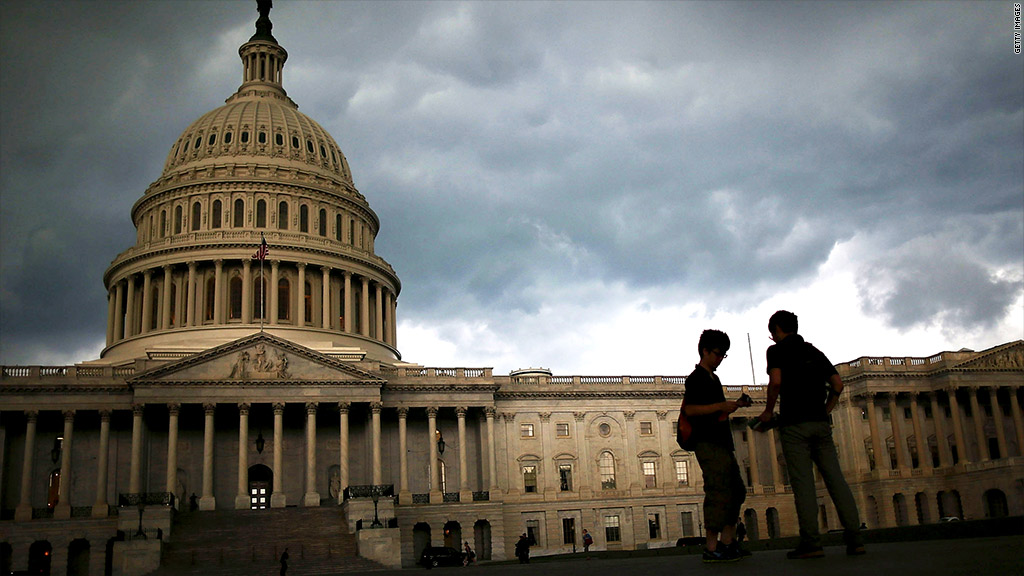
Rating agency Fitch put the U.S. on notice Tuesday for a possible downgrade, with lawmakers still struggling to resolve the debt ceiling crisis.
Fitch still has the U.S. rated AAA, the highest possible grade, but the country is now on "rating watch negative," meaning that there is increased possibility of a downgrade in the near future.
"Although Fitch continues to believe that the debt ceiling will be raised soon, the political brinkmanship and reduced financing flexibility could increase the risk of a U.S. default," the agency said in a statement.
A Treasury Department spokesperson said the announcement "reflects the urgency with which Congress should act to remove the threat of default hanging over the economy."
Rating agencies assess the risk that debtors, including countries and companies, won't be able to repay the money they borrow from investors.
If the debt ceiling isn't raised by Thursday's deadline, the Treasury Department will not be able to borrow money to cover all its obligations, which include not only interest payments, but also Social Security, Medicare, military pay and much more.
It's unclear exactly when Fitch will make a final decision on whether to go through with a downgrade.
Should the U.S. miss a debt payment, it would immediately be downgraded to "RD" -- short for "restricted default" -- until the situation is resolved.
But the agency also indicated next steps hinge in part on what Congress does. One factor: How lawmakers finally decide to raise the limit, and for how long.
Fitch said it would "take into account the manner and duration of the agreement and the perceived risk of a similar episode occurring in the future."
Related: 6 ways a default could hurt the world
Some commentators, including rival ratings agency Moody's, have speculated that the Treasury Department would prioritize debt payments even if the debt ceiling isn't raised, preserving the country's creditworthiness. But Fitch said Treasury "may be unable to prioritize debt service, and it is unclear whether it even has the legal authority to do so."
Treasury officials, for their part, have called debt prioritization unworkable, urging Congress to raise the debt ceiling in timely fashion.
Fitch said the current crisis, which follows a similar debt showdown in 2011, "risks undermining confidence in the role of the U.S. dollar as the preeminent global reserve currency, by casting doubt over the full faith and credit of the U.S."
"The repeated brinkmanship over raising the debt ceiling also dents confidence in the effectiveness of the U.S. government and political institutions, and in the coherence and credibility of economic policy," Fitch said.
Rating agency Standard & Poor's cut the U.S. credit rating from AAA to AA+ following the 2011 crisis. Moody's still has the U.S. rated AAA.
Politics aside, Fitch noted the country's "strong economic and credit fundamentals," including its dynamic economy and the "exceptional financing flexibility afforded by the global reserve currency status of the U.S. dollar." Fitch also highlighted the shrinking budget deficit, which has been halved since 2010.
CNNMoney's Jeanne Sahadi contributed reporting.


